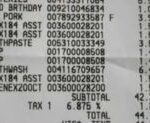It’s not uncommon to find businesses that blur the line between service and retail. For example, consider a mobile oil change side hustle. It is primarily a service—it provides convenience and labor—but it also involves the sale of tangible goods, such as motor oil and filters. This hybrid model often raises a critical and frequently misunderstood question: Do you need a sales tax license if you’re primarily a service provider but also pass along physical products to customers?
The short answer? Usually, yes. But as with many things in business, there’s nuance—and even a clever workaround.
The Service-Product Blend That Triggers Taxation
In most states, sales tax applies to tangible personal property (TPP), which includes items like motor oil, parts, and cleaning supplies. Even if you’re offering a bundled service, once a product changes hands, you’re stepping into taxable territory.
The challenge is especially relevant to mobile businesses that work across multiple jurisdictions. If you’re driving from one end of a county to the other, providing oil changes, you could technically be required to collect and remit sales tax for every city in the county you serve. This can become an administrative nightmare unless you’ve done the legwork of registering properly with each tax district—or unless you find a legal, ethical way to sidestep the complexity.
The Workaround: Pure Pass-Through With No Markup
One of the key distinctions that small service-based businesses must understand is the difference between buying wholesale versus buying retail, and how that choice affects their sales tax responsibilities.
When you buy products wholesale or in bulk—typically using a resale certificate—you are not charged sales tax at the time of purchase. The assumption is that you are reselling those goods to an end customer, and therefore, you are required to collect and remit sales tax on the retail sale. This setup transforms your role from service provider to retail seller, and you are now responsible for obtaining a sales tax license and filing tax returns for those transactions.
But there’s an alternative that many part-time or early-stage service providers use—especially those operating on a small scale or in a mobile capacity. Instead of buying wholesale, you can purchase your materials at retail, pay the sales tax at the point of sale, and then pass along the retail price to the customer without any markup.
For example, let’s say you operate a mobile oil change business and pick up motor oil and filters from Walmart. You pay sales tax when you check out, just like any consumer would. Then, when you invoice your customer, you simply include the retail price (with tax) exactly as you paid it. You’re not profiting from the product—you’re simply delivering it as part of your service. In this scenario, you’re functioning more like a courier than a retailer.
This is what’s commonly referred to as a pass-through model. It’s generally acceptable to many state tax authorities as long as three critical conditions are met:
- You paid the sales tax
- You applied no markup to the product.
- The invoice clearly separates service fees (like labor or handling) from the product cost.
However—and this is where many small businesses trip up—if you mark up the cost of the product, even if you round up by a few cents, you’ve crossed the line. You are no longer a pass-through provider; you are now engaged in a taxable retail sale, and you’re obligated to have a sales tax license and handle the collection and remittance of tax appropriately.
In summary:
- Buy wholesale = No sales tax paid upfront = You must collect and remit tax = You need a license.
- Buy retail = Sales tax already paid = Pass-through without markup = No license needed in many cases.
Understanding this difference can help you avoid accidental non-compliance and keep your business lean, especially in the early stages.
Handling Fees Are Fine—But Handle Them Correctly
You can charge a handling or delivery fee for your time and effort in acquiring and transporting the product. That part of your fee is for service, not for goods. So, if you’re charging $30 for labor, $20 for oil (as paid at Walmart, tax included), and a $5 handling fee, you’re still safe—assuming you’re transparent and not padding the oil price.
This approach offers a clean separation:
- Labor: Service (typically not taxed in many states)
- Product: Pure pass-through (already taxed at retail)
- Handling: Additional service fee (may or may not be taxed depending on your state)
Real-World Examples of When a Pass-Through Strategy Applies
Here are five more real-world examples of service businesses that also sell products as part of their offering—where the question of needing a sales tax license often comes up—and how a pass-through strategy might apply:
1. Mobile Dog Grooming Service
- Primary Service: Grooming dogs (bathing, cutting, nail trimming).
- Product Involved: Shampoos, flea treatments, and pet accessories.
- Sales Tax Implication: If the groomer sells a bottle of shampoo or applies a flea treatment and marks it up, they need a sales tax license.
- Pass-Through Example: The groomer buys the flea treatment from PetSmart (paying tax at the register) and charges the customer the exact price, no markup—possibly adding a handling or application fee as a service.
2. Handyman or Mobile Repair Business
- Primary Service: Home repairs (fixing plumbing, drywall, etc.).
- Product Involved: Parts like caulk, pipe fittings, screws, paint.
- Sales Tax Implication: Marking up these materials makes them taxable sales.
- Pass-Through Example: The handyman purchases a $3 tube of caulk at Home Depot (tax included), invoices the customer $3 for the caulk and adds a $50 service fee to apply the caulk to the customer’s tub—no sales tax license required in most cases.
3. Freelance Photographer
- Primary Service: Photography session.
- Product Involved: Printed photos, USB drives, framed portraits.
- Sales Tax Implication: If they sell a framed photo or album, it’s a taxable transaction.
- Pass-Through Example: Photographer uses a service like Walgreens to print a framed 8×10, pays tax at Walgreens, and invoices the client the same amount—offering labor and creative fees separately.
4. Mobile Bicycle Repair
- Primary Service: On-site bicycle tune-ups and repairs.
- Product Involved: Brake pads, tubes, chains, and lubricants.
- Sales Tax Implication: Marking up a new chain or tire would require a tax license.
- Pass-Through Example: Buys a new tube from a retail store, pays tax, charges the customer the same price for the tube, and invoices labor separately.
5. House Cleaning Service
- Primary Service: Cleaning residential or office spaces.
- Product Involved: Cleaning supplies (specialty sprays, disposable gloves, etc.).
- Sales Tax Implication: Selling or marking up cleaning products may trigger the need for a license.
- Pass-Through Example: If the cleaner uses a specific non-toxic product requested by the client, they can purchase it retail (with tax), and include the exact cost on the client’s invoice as a line item—plus a handling fee if appropriate.
When This Strategy Fails
This pass-through model is not a free pass for all businesses. If you begin purchasing supplies in bulk from wholesalers or distributors without paying sales tax (as is common when using a resale certificate), then you must collect and remit sales tax to the state when those products are sold.
Also, some states may still require registration even if you’re using the pass-through method. That’s why it’s critical to check with your state’s department of revenue or a knowledgeable tax advisor to make sure you’re staying compliant.
Going Mobile Adds Layers Of Complexity
Mobile businesses face a special challenge. Sales tax rules are often based on the location of delivery. That means the local tax rate in one city or county might differ from another—even if you’re operating under the same state.
If you work across a wide region, trying to manually track sales tax rates in each jurisdiction can get burdensome. This is one reason many mobile businesses either:
- Avoid selling products entirely (charging only for service), or
- Opt for the pass-through method with transparency and documentation
In the long run, as your business grows, it may be worth formalizing your retail operations and applying for a sales tax license. It opens the door to buying wholesale and improves your margins. But for part-timers or startups, the pass-through model can offer a manageable and legal alternative.
Related Post: How To Be Compliant With Internet Sales Tax Laws
So, Do You Need a Sales Tax License?
If you’re in a service business and include products as part of your offering, ask yourself:
- Do I mark up the price of the product?
- Do I pay sales tax when I purchase it?
- Am I itemizing the invoice transparently?
- Am I working in multiple jurisdictions?
If the answer to that last question is yes, and you’re scaling up, it might be time to consider registering for a license—even if only to protect your business as it grows.
Could a sales tax pass-through approach keep your small business legal and lean? Or are you ready to formalize your operations with a full retail license?












